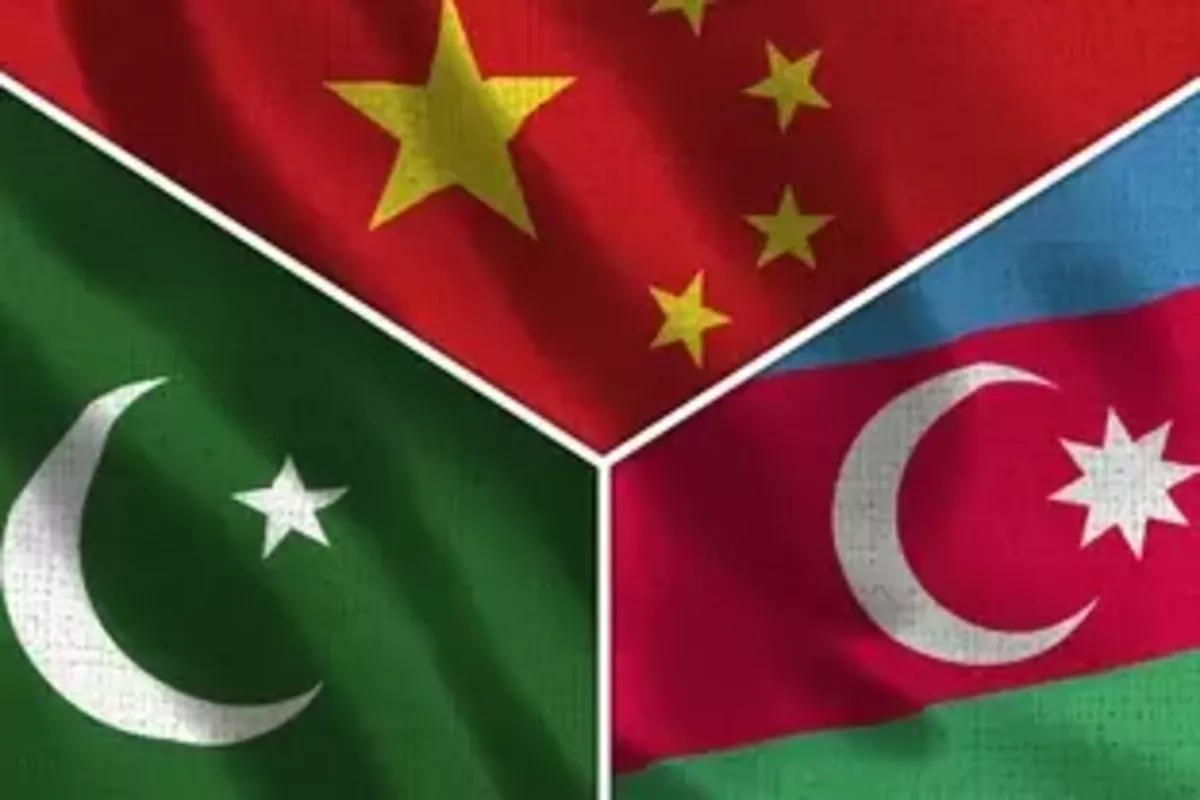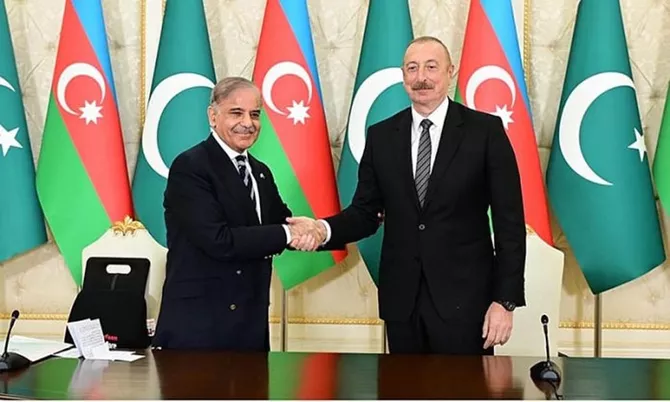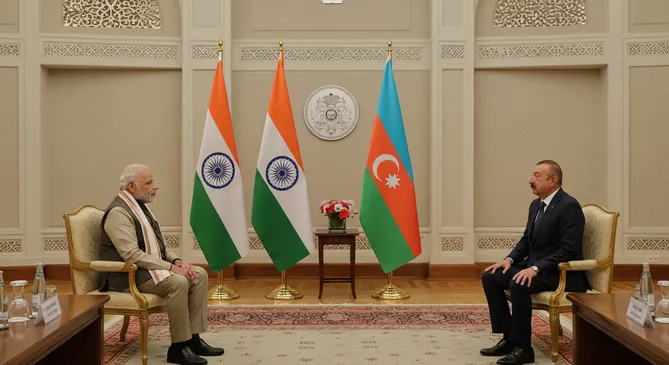
photo: shutterstock
The relationship between Baku and New Delhi today has taken on the form of a systemic confrontation, shaped less by strategic calculation and more by emotion and political revenge on the part of India. At the heart of this clash lies Azerbaijan’s close alliance with Pakistan-a partnership that has long irritated New Delhi and prompted repeated attempts by India to “punish” Azerbaijan on the international stage.
For decades, Azerbaijan has been a consistent and open supporter of Pakistan on the Kashmir issue. In turn, during the thirty years of Armenia’s occupation of Karabakh, Islamabad firmly recognized Karabakh as Azerbaijani territory and actively opposed the Armenian lobby on the global stage. This mutual strategic exchange has forged a strong and resilient Azerbaijan-Pakistan axis. For India, this dynamic represents a deeply painful challenge, especially given its chronic rivalry with Pakistan.

photo: Business Recorder
In recent years, India has systematically used international mechanisms to restrain Azerbaijan’s growing influence. Most recently, New Delhi blocked Baku’s bid for full membership in the Shanghai Cooperation Organization (SCO) for the second time, openly disregarding China’s support and undermining the very “Shanghai Spirit” upon which the organization was founded. Such actions have not gone unnoticed in Baku, where diplomats are well aware of India’s repeated attempts to slow or derail Azerbaijani initiatives, limiting the country’s diplomatic maneuverability. For many observers, India has long acted as an instrument of Armenian interests, replacing the logic of multilateral diplomacy with short-term, self-serving ambitions.
This policy damages not only the prospects for dialogue but also India’s own reputation as a so-called “rising global power.” When comparing the global positions of Azerbaijan and India, the contrast is stark. Azerbaijan operates with foresight, investing in the development of transport corridors, advancing major energy projects, and deepening ties with Türkiye, China, the European Union, and the United States. Baku’s policy is based on a long-term vision and real regional influence.
India, by contrast, has chosen a path of emotional retaliation and short-term obstructionism-an approach that only accelerates its own self-isolation. Instead of constructive competition, New Delhi has resorted to petty sabotage. Such behavior carries serious consequences for India itself. First, it undermines trust within the SCO, where China and other members increasingly view India’s actions as a barrier to integration. Second, it erodes India’s global standing as it turns international organizations into arenas for personal grievances. Finally, it creates strategic losses for New Delhi as Baku strengthens its partnerships with Pakistan and China, gaining new levers of influence. India’s refusal to support China’s Belt and Road Initiative is a clear signal of its retreat into a corner, step by step consigning itself to regional political and economic isolation that could ultimately result in a painful and irreversible collapse.

photo: Policy Wire
Ironically, India’s attempts to weaken Azerbaijan or block its participation in international organizations are pushing Baku toward even stronger alliances-a development that will inevitably create long-term problems for India itself. What New Delhi fails to recognize is that Azerbaijan does not have a pressing need to be a full SCO member. Baku already maintains strong bilateral ties with most of the organization’s key players. India’s actions, on the other hand, suggest that it may even have an interest in undermining the SCO from within, serving the interests of Western blocs instead of fostering regional cooperation.
In the end, New Delhi’s policy toward Azerbaijan is not the strategy of a confident and influential power. It is a narrow, shortsighted tactic that, step by step, drives India toward diplomatic, reputational, and strategic decline. Rather than advancing its interests, India is isolating itself and diminishing its role on the world stage, leaving the door open for Azerbaijan and its allies to shape the region’s future without it.
Share on social media